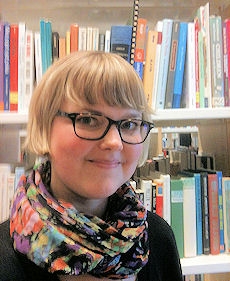I never knew what I wanted to do as an adult. I found many things interesting, but when I had to decide which discipline could be my field, I had no idea. I will tell you how I ended up studying in Adult Education and Developmental Work Research Master’s Degree Programme (ATMO) and why I find it the best choice for me. This is also a story about the fact that by drifting you can eventually end up in something that really interests you. It is not easy to know what you want after high school.
Long story short: After high school I was kind of interested in studying in University of Art and Design, as I thought I was artistic and creative (and I was very interested in art student boys…), but ended up studying bachelor’s degree in Business Polytechnic. After studies I ended up working in a big Telecommunication company. I did not find it my thing and was still dreaming of becoming an art teacher. I started to study Educational Sciences at the Helsinki Open University. There I realized that I was very interested in Adult education, and wanted to learn more about it. I quit my job and applied to University of Helsinki.
After studying Education at University I heard about the ATMO Master’s degree programme in Adult education and developmental work research. This was the thing that I was really interested in! I really enjoyed my studies in the programme. The best part was to do my Master’s Thesis to a real research project. I felt I could really see what it is like to do research at University. Though I had my doubts about work research at the beginning; am I really interested enough to concentrate my studies in work research? I was happily surprised by the fact that among Activity theoretical work research, only the sky is the limit to choose your research interest! My fellow students made their Master’s thesis from the following subject: Foreign professionals’ experiences at the University of Helsinki, Patient participation in Healthcare consultations in new care model, the development of debt counselors’ work, and the formation of indigenous University at Bolivia. Talk about diversity!
The best thing about Cultural historical Activity theory, which developmental work research is based on, is that it is an excellent framework to study various fields of interests. Only your imagination is the limit!
Inkeri Aalto-Setälä
P.S. Next intake for ATMO is in 2014, please visit the ATMO website for more information on the programme.

